
Atsushi Sakurai was a Japanese musician and singer-songwriter. He was the lead vocalist and primary lyricist of the rock band Buck-Tick from 1985 until his death in 2023. Initially joining as their drummer in 1983, Sakurai fronted the band for 38 years and 23 studio albums, nearly all of which reached the top ten on Japan's Oricon chart. They are commonly credited as one of the founders of the visual kei movement.

Taboo is the fourth studio album by the Japanese rock band Buck-Tick. It was released on cassette, CD and as a two-record vinyl set on January 18, 1989, through Victor Entertainment. Taboo was digitally remastered and re-released on September 19, 2002, with two bonus tracks. It was remastered and re-released again on September 5, 2007. "Angelic Conversation" was re-recorded as the b-side to the group's single "M・A・D" in 1991. "Just One More Kiss", "Iconoclasm" and "Taboo" were later re-recorded for the compilation album Koroshi no Shirabe: This Is Not Greatest Hits (1992). "Iconoclasm" was covered by J for the Buck-Tick tribute album, Parade -Respective Tracks of Buck-Tick- (2005). Taboo peaked at number one on the Oricon charts, selling 298,620 copies in the first year, and at least 300,000 in total.

Aku no Hana is the fifth studio album by the Japanese rock band Buck-Tick. It was released on cassette and CD on February 1, 1990, through Victor Entertainment. It peaked at number one on the Oricon charts and is the group's best-selling album to date. It was certified gold in the month of its release, and sold 435,080 copies in the first year of its release. The title comes from Charles Baudelaire's volume of poetry, Les Fleurs du mal.
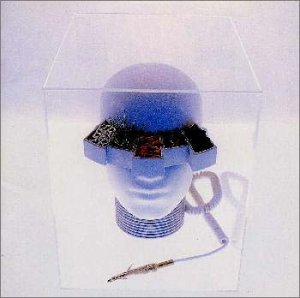
Sexy Stream Liner is the tenth album by Buck-Tick, their first on Mercury Music Entertainment, released on December 10, 1997. It reached number four on the Oricon chart with 78,820 copies sold. Starting with this album, Hisashi Imai started using the theremin in their sound. Like their previous album, Sexy Stream Liner is very influenced by the cyberpunk subculture.

Darker Than Darkness: Style 93 is the seventh studio album by the Japanese rock band Buck-Tick. It was released on June 23, 1993, through Victor Entertainment. The album peaked at number two on the Oricon chart, became a certified gold seller by July 1993, and subsequently sold 213,260 copies. Darker Than Darkness: Style 93 was digitally remastered and re-released on September 19, 2002, with two bonus tracks. It was remastered and re-released again on September 5, 2007. "Dress" was remixed and used as the opening theme for the anime Trinity Blood (2005), this version was also released as a single. The album was named one of the top albums from 1989 to 1998 in a 2004 issue of the music magazine Band Yarouze.

BT is the third compilation album by Buck-Tick, released on March 20, 1999. It compiles every single and B-side they released while signed to Victor Entertainment, except the live B-sides of "Die". It also includes a demo version of "Romanesque". It reached number sixteen on the Oricon chart. The album was remastered and re-released on September 5, 2007.

Catalogue 2005 is the sixth compilation album by Buck-Tick, released on December 7, 2005. It is an updated, expanded edition of Catalogue 1987–1995 that was released in 1995. However, it does not contain "M・A・D", "Die" or "Mienai Mono o Miyou to Suru Gokai Subete Gokai da". It reached number fourteen on the Oricon chart.

Kurutta Taiyou is the sixth studio album by the Japanese rock band Buck-Tick. It was released on cassette and CD on February 21, 1991, through Victor Entertainment. The album was digitally remastered and re-released on September 19, 2002, with two bonus tracks. It was remastered and re-released again on September 5, 2007. "Speed", "M・A・D" and "Jupiter" were later re-recorded for the group's compilation album Koroshi no Shirabe: This Is Not Greatest Hits (1992).

Koroshi no Shirabe: This Is Not Greatest Hits is the first compilation album released by the Japanese rock band Buck-Tick. It was released on cassette and CD on March 21, 1992, through Victor Entertainment. All of the tracks on the compilation were re-recorded and contain different musical arrangements, because of this some argue that it is a studio or remix album. The album was digitally remastered and re-released on September 19, 2002, with a bonus track. It was remastered and re-released again on September 5, 2007. Koroshi no Shirabe: This Is Not Greatest Hits peaked at number one on the Oricon charts. It was certified gold in April 1992, and has sold 338,000 copies.
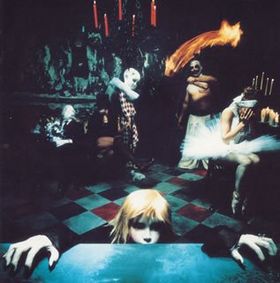
Juusankai wa Gekkou is the fourteenth album by Japanese rock band Buck-Tick, released on April 5, 2005.

Catalogue 1987–1995 is the second compilation album by Buck-Tick, released on December 1, 1995. It compiles every single they released while signed to Victor Entertainment, except "Candy" which was released on May 22, 1996. It reached number eight on the Oricon chart. It was certified gold in the month of its release. The album was remastered and re-released on September 5, 2007, this time including "Candy" as a bonus track.
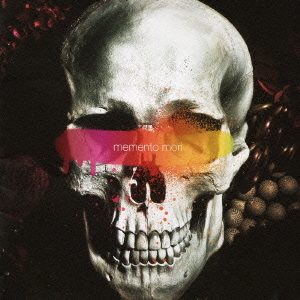
Memento Mori is the sixteenth album by Japanese rock band Buck-Tick, released on February 18, 2009. The limited edition came with a DVD of the making of the album. It reached number seven on the Oricon chart with 23,410 copies sold.
The discography of Buck-Tick includes 23 studio albums, 4 live albums, 2 extended plays, 43 singles, and 43 video albums. Formed in 1983 in Fujioka, Gunma, the group consisted of lead vocalist Atsushi Sakurai, lead guitarist Hisashi Imai, rhythm guitarist Hidehiko Hoshino, bassist Yutaka Higuchi and drummer Toll Yagami from 1985 until Sakurai's death in 2023. In their four decade career, nearly all of their albums have reached the top ten on the charts and they have experimented with many different genres of music, including punk, dark wave, electronic, industrial, gothic and straight rock. Buck-Tick are commonly credited as one of the founders of the visual kei movement.
Hisashi Imai is a Japanese musician and songwriter. He is best known as the lead guitarist of the rock band Buck-Tick since 1983. He has also performed in side-projects such as the duo Schaft with Soft Ballet member Maki Fujii, the supergroup Schwein, and the rock trio Lucy. Imai is known for his visual aesthetics, and Buck-Tick are commonly credited as one of the founders of the visual kei movement.
"Just One More Kiss" is the second single by the Japanese rock band Buck-Tick. It was released on October 26, 1988 by Victor Entertainment as the band's major label debut.
Aku no Hana (悪の華) is the third single released by the Japanese rock band Buck-Tick, released on January 24, 1990, and labeled with Victor Entertainment.
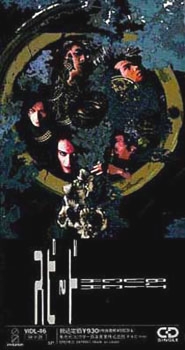
"Speed" (スピード) is the fourth single released by the Japanese rock band Buck-Tick. It was released as the first single from the group's sixth studio album, Kurutta Taiyou, on January 21, 1991, through Victor Entertainment. The single was released as an 8 cm CD in a cassette-like sleeve case that featured a re-worked version of the cover to Kurutta Taiyou. "Speed" peaked at number 3 on the Oricon music chart during the third week of 1991. It is band's 3rd best-selling single, with over 180,000 copies sold.
"Dress" is the seventh single by Japanese rock band Buck-Tick, released on May 21, 1993. The song was written by vocalist Atsushi Sakurai, composed by guitarist Hidehiko Hoshino, and produced by the band themselves. It was the first single released off of their seventh studio album Darker Than Darkness -Style 93-, which was released a month later. It reached number 5 on the Oricon Singles Chart. It is band's fourth best-selling single, with over 171,000 copies sold.

Abracadabra is the 22nd studio album by the Japanese rock band Buck-Tick, released on September 21, 2020 by the label Lingua Sounda, subdivision of Victor Entertainment and November 20, 2020 internationally by JPU Records. It was released in two editions in Japan: regular and limited in three formats: CD + Blu-ray, cassette and vinyl. Internationally it was released on CD and cassette with bonus tracks.
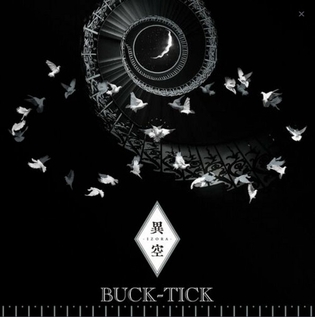
Izora (異空) is the twenty-third studio album by the Japanese rock band Buck-Tick. It was released on April 12, 2023. The album peaked at the 2nd position on the Oricon Albums Chart and is the band's first Top 3 album on Billboard Japan Hot Albums chart. Its charting success makes it a rare example for such a long-lasting band and their "will and persistence" on the Japanese music scene. It is the last album featuring lead singer Atsushi Sakurai, who died on October 19, 2023.















